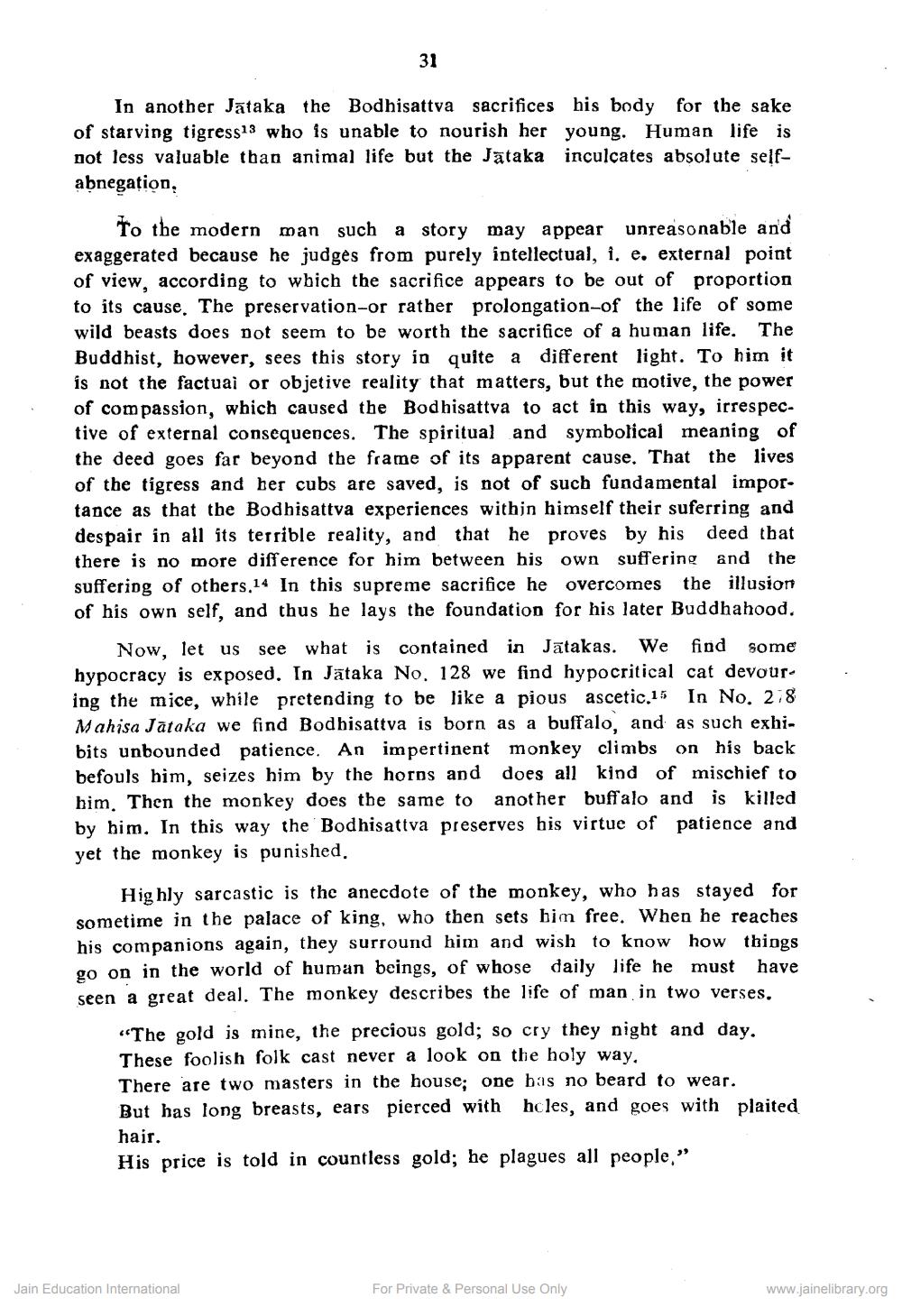________________
31
In another Jātaka the Bodhisattva sacrifices his body for the sake of starving tigress13 who is unable to nourish her young. Human life is not less valuable than animal life but the Jātaka inculcates absolute selfabnegation,
To the modern man such a story may appear unreasonable and exaggerated because he judges from purely intellectual, i. e. external point of view, according to which the sacrifice appears to be out of proportion to its cause. The preservation-or rather prolongation-of the life of some wild beasts does not seem to be worth the sacrifice of a human life. The Buddhist, however, sees this story in quite a different light. To him it is not the factuai or objetive reality that matters, but the motive, the power of compassion, which caused the Bodhisattva to act in this way, irrespective of external consequences. The spiritual and symbolical meaning of the deed goes far beyond the frame of its apparent cause. That the lives of the tigress and her cubs are saved, is not of such fundamental importance as that the Bodhisattva experiences within himself their suferring and despair in all its terrible reality, and that he proves by his deed that there is no more difference for him between his own suffering and the suffering of others.14 In this supreme sacrifice he overcomes the illusion of his own self, and thus he lays the foundation for his later Buddhahood.
Now, let us see what is contained in Jātakas. We find some hypocracy is exposed. In Jataka No. 128 we find hypocritical cat devour. ing the mice, while pretending to be like a pious ascetic.15 In No. 278 Mahisa Jataka we find Bodhisattva is born as a buffalo, and as such exhibits unbounded patience. An impertinent monkey climbs on his back befouls him, seizes him by the hords and does all kind of mischief to him. Then the monkey does the same to another buffalo and is killed by him. In this way the Bodhisattva preserves his virtue of patience and yet the monkey is punished.
Highly sarcastic is the anecdote of the monkey, who has stayed for sometime in the palace of king, who then sets him free. When he reaches his companions again, they surround him and wish to know how things go on in the world of human beings, of whose daily life he must have seen a great deal. The monkey describes the life of man in two verses.
"The gold is mine, the precious gold; so cry they night and day. These foolish folk cast never a look on the holy way. There are two masters in the house; one has no beard to wear. But has long breasts, ears pierced with hcles, and goes with plaited hair. His price is told in countless gold; he plagues all people,”
Jain Education International
For Private & Personal Use Only
www.jainelibrary.org




